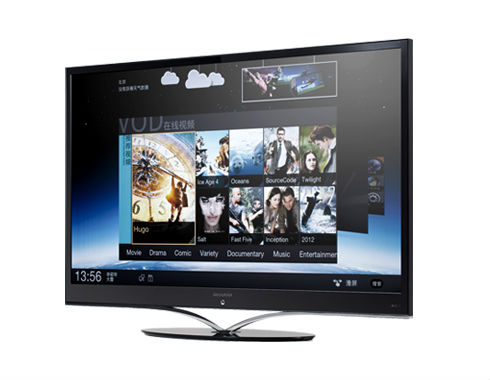End Of Analogue TV Paves The Way For 4G

Analogue television ceases to broadcast in the UK, killing off Ceefax in the process
tvAnalogue television has ceased to broadcast in the UK after Northern Ireland became the final region of the UK to end transmissions and complete the digital switchover.
The shut down marks the end of 70 years of analogue broadcasting since the first transmission was made on 2 November 1936.
Those who wish to continue watching television must now purchase a set-top box or television with a built in Digital Terrestrial Television (DTT) tuner or subscribe to a cable or satellite service such as Virgin Media or Sky.
Analogue TV Ends
 Ofcom has welcomed the move, saying that the transition to DTT will free up much needed spectrum for 4G Long Term Evolution (LTE) broadband services. The switchover started in 2004 when Ofcom published its first blueprint for the process and the first area of the UK to make the jump was Whitehaven in 2007.
Ofcom has welcomed the move, saying that the transition to DTT will free up much needed spectrum for 4G Long Term Evolution (LTE) broadband services. The switchover started in 2004 when Ofcom published its first blueprint for the process and the first area of the UK to make the jump was Whitehaven in 2007.
The communications watchdog has produced coverage plans for all 1,154 DTT transmitter sites to secure near universal coverage, made license variations to reflect the frequency, transmitter and power level changes required and has also liaised with neighbouring countries to secure the necessary frequencies.
“The UK’s switchover to digital has been a huge success. Not only has is created more TV choice for consumers, it has also freed up vital capacity that will be used to deliver mobile broadband services to 98% of cities, towns and villages across the UK,” said Ofcom Chief Executive Ed Richards. “Now that switchover is complete, Ofcom is looking forward to delivering the 4G auction as the next step in delivering new higher speed mobile broadband services.”
 EE will launch the first commercial 4G service in the UK next week, but its network uses its existing spectrum, rather than the frequencies freed up by the digital switchover. This bandwidth will be auctioned by Ofcom before the end of 2012, with other operators launching networks in the spring.
EE will launch the first commercial 4G service in the UK next week, but its network uses its existing spectrum, rather than the frequencies freed up by the digital switchover. This bandwidth will be auctioned by Ofcom before the end of 2012, with other operators launching networks in the spring.
There have been concerns that 4G networks could interfere with DTT signals, but the major carriers have agreed to the creation of a joint-venture to resolve any potential issues.
While most people will be happy with the greater number of channels available on digital television, many will be sad to see the end of Ceefax, the BBC’s real-time news and information service, which has been in operation since 1975. It has since been superseded by the Internet and digital text services, but its passing was mourned by the millions that lost access to it in April.
How much do you know about smartphones? Take our quiz!